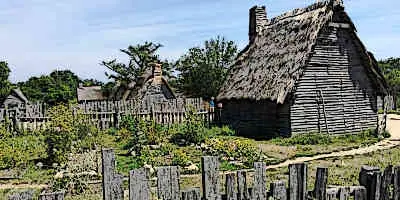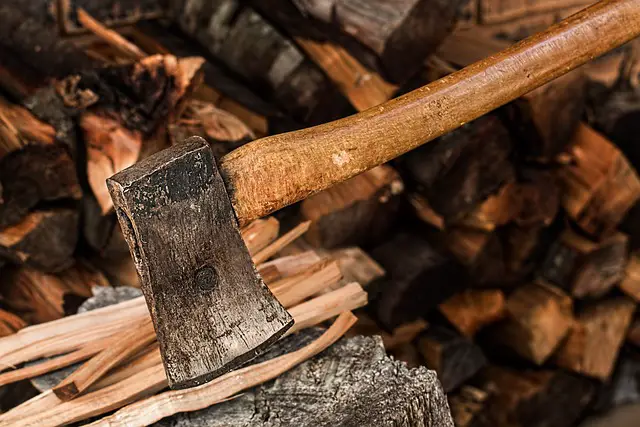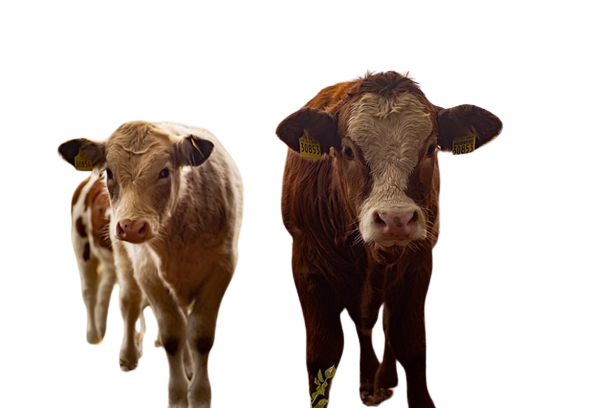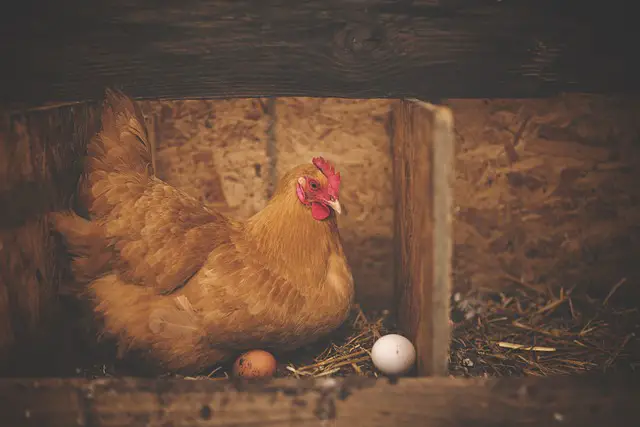Colonial Farm Family Life
Daily Life
Daily life in the colonial period was a far cry from the modern world we know today. Life on the farm was a daily struggle for those first European settlers in America. Families worked hard to produce the food and other goods that were essential to their survival.

In this article, we will explore what a day in the life of a colonial farm family would have looked like. We will examine the daily routines, the challenges they faced, and the rewards they reaped from their labors. Join us as we travel back in time to learn more about the daily life of a colonial farm family.

Waking Up
The early morning work began before the sun was up for those living and working on a colonial farm. Men typically worked in the fields, tending to crops and animals, while women worked around the house and barns, spinning, weaving and cooking.

Children were usually expected to help with light work when they were old enough, though not all farms used enslaved workers.
It is interesting to note that some children were even employed outside of the family farm, such as providing assistance in blacksmiths or cooper shops.
Despite the hard work, daily life on a colonial farm was incredibly rewarding; families were able to enjoy home-cooked meals and the fruits of their labor.
The Morning Chores
Early morning work on the farm in Colonial America began as soon as the sun rose. This was typically men’s work such as feeding and milking the animals, preparing the soil for planting, and collecting firewood.

Women were expected to keep the house running smoothly which included washing clothes, cooking meals, cleaning, and caring for the children.
Though children were not expected to do heavy labor, they could help with the lighter tasks around the house and farm.
Interestingly most of the tools used were handmade by the farmer. The only animals on the farm were for food or for work, so there were no pets.

There may have been enslaved workers on the farm doing most of the heavier labor. Depending on the size of the farm and how many people lived there, children may have been asked to work in some capacity as well.
Breakfast
In the early morning, after a few hours of work for men and women, the family would gather together for breakfast. Women were typically in charge of making meals and their children often helped with the task.
What the family ate for breakfast depended on what was available to them, but typically it consisted of items such as cornbread, porridge, or some type of meat.

Working in the Fields
Life on a colonial farm revolved around the fields. Early in the morning, men would work in the fields, tending to the crops and animals. Women would also work in the fields, gathering wood, herding animals, and even helping with some of the more basic farming tasks like hoeing and harvesting.

Depending on the size of the farm, there may have been enslaved workers helping with the more laborious tasks. Though children did not usually help with the daily field work, they often assisted with simple tasks like weeding and gathering eggs.

Interestingly daily life on a farm in colonial times included the fact that most farms had only a few domesticated animals such as cows, horses, pigs, and chickens. It was also common for farmers to employ crop rotation methods to maintain soil fertility.
Dinner
At the end of a long day, colonial families would come together for a meal. After the men had finished their early morning work and before they started their evening chores, families would enjoy a hearty dinner.
Depending on what was available, this would typically include a combination of proteins, grains, fruits, and vegetables. For proteins, this might include poultry, pork, or beef; grains could be wheat, corn, oats, or rye; and fruits and vegetables could vary seasonally.

Women were in charge of preparing meals and while they did not work in the fields, they were still responsible for much of the work associated with running a farm, including cooking, cleaning, tending to livestock, and preserving food.
Did the children work on the farm?
Yes, it was very common for children to take part in farm activities, although there were no set hours or specific tasks. Depending on their age, children would often help with gathering eggs, feeding animals, weeding crops, and other tasks around the house.
In some cases, particularly if there were enslaved workers on the farm, children may have been required to do more strenuous labor.
Interesting facts regarding the daily life on the farm in colonial times
Families living on a farm during colonial times were largely self-sufficient. They grew their own food, made their own clothes and tools, and were able to survive without relying on outside goods or services.

Additionally, families would often share resources with their neighbors, such as trading eggs for milk or helping to bring in another family’s harvest. This level of cooperation between neighbors was an important part of life in colonial America.
Bedtime
At the end of a long day, the family of a Colonial farm would settle down for the night. Men and women alike were exhausted from the early morning work, so sleep was an important part of their daily routine.
Women had the added task of caring for children, as well as preparing meals and keeping house, but men were primarily responsible for the manual labor on the farm.
It is interesting to note that, even though children were expected to help with farm chores, there were very few cases of children working on the farm in colonial times.

Additionally, depending on the region, some farms employed enslaved workers to do the labor that was too difficult for the family. With all of these facts in mind, it is safe to say that Colonial families worked hard every day, and bedtime was much appreciated at the end of it all.
- Colonial Period
- 13 Colonies
- British and French colonies
- British Colonization
- Colonial Farm Family Life
- Colonial Homes
- Colonial Houses
- Colonial Native Americans
- Colonial Period – Top 10
- Colonial Period Timeline
- Colonial Period Timeline and Dates
- Colonial Period Top 10 Events
- Colonial Wars
- Colonies of New England
- Colony Life
- Discover Who Wrote the Mayflower Compact
- Dutch Colonization
- Early Settlers
- French Colonization
- Middle Colonies
- Plymouth Colony – Pilgrims
- Red Coats in Colonial Times
- Spanish Colonization
- The House of Burgesses
- The Salem Witch Trials
- Top 10 Colonial People
- What was the Seven Years War?
- Who Were the Puritans?
- Why the Pilgrims Chose to Land Where They Did
- William Penn